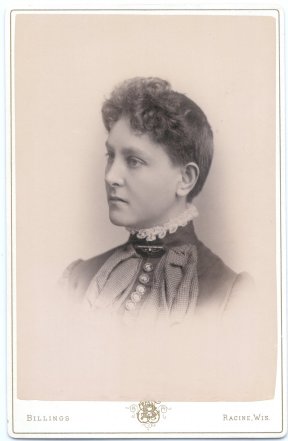
| THE HANDSTAND | AUGUST-OCTOBER2009 |
Slavery
and Discrimination: More than Attitude
By John Burl Smith
Slavery and discrimination against blacks are divides that cut across
Americans psyche like the Mississippi River divides the country.
Although most pretend this battle is only waged within the hearts and minds on both sides, the effects of both -- slavery and discrimination
-- leave physical wounds that gouge the lives of descendants of slaves and slave masters daily.
An illustration of how the
continuing impact of slavery's legacy reaches out from
the grave and pulls individuals, families,  communities and this nation back
into that haunting past is currently playing out at a
small Georgia college -- Kennesaw State University (KSU),
which is located near Kennesaw Mountain where Gen.
William Tecumseh Sherman fought a major battle against
Confederate forces during the closing days of the Civil
War to capture Atlanta. This new
skirmish is a sequel to Gone with the Wind, and it is
exposing the hate filled legacy of a local icon ? Corra
White Harris -- a true daughter of the Confederacy.
A writer of serialized fiction and magazine essays,
Harris is also credited with being the first female war
correspondent during WWI. Along with publishing 19
books, her pseudo-autobiographical novel, A Circuit-
Rider's Wife (1910), became a movie starring Susan
Hayward.
communities and this nation back
into that haunting past is currently playing out at a
small Georgia college -- Kennesaw State University (KSU),
which is located near Kennesaw Mountain where Gen.
William Tecumseh Sherman fought a major battle against
Confederate forces during the closing days of the Civil
War to capture Atlanta. This new
skirmish is a sequel to Gone with the Wind, and it is
exposing the hate filled legacy of a local icon ? Corra
White Harris -- a true daughter of the Confederacy.
A writer of serialized fiction and magazine essays,
Harris is also credited with being the first female war
correspondent during WWI. Along with publishing 19
books, her pseudo-autobiographical novel, A Circuit-
Rider's Wife (1910), became a movie starring Susan
Hayward.
Recently, her 56-acre homestead, which contains the oldest building in the county and the chapel where Harris is buried, was donated to the university. KSU was so thrilled by the gift, which is valued at more than 3 million dollars, the Georgia Writers Association based at KSU planned to host a retreat on the site and name the event in her honor.
Although Harris is relatively unknown, faculty members wished to shower her with accolades, hence they researched her history.
Suddenly, a full-fledged fire fight flared forcing foreclosure of the notion.
It seems, rather than a media darling for today, back in her day to build her career Harris displayed vehement bigotry and flaming racist sentiment. The time was 1899 -- the height of the Ku Klux Klan's resurgence when lynching blacks was called "pick-a-nick." Lynching blacks was an entertainment event attended by men, women, children, preachers and politicians. It was celebrated in newspapers like rock concerts today. Harris was like a CNN anchor or a Rush Limbaugh of her time, sensationalizing lynchings, like that of Sam Hose.
Today, Hose's lynching is considered the most savage and gruesome, as well as notorious in Georgia's history, which has lots of lynching.
For her debut, Harris responded to an editorial in The Independent, a respected New York magazine, which condemned Hose's lynching, with a fervent defense of the murderers. "This is an understandable reaction by southern whites to the threat posed by the black man, who has the savage nature and the murderous instincts of a wild beast, plus the cunning and lust of a fiend. At no time, in no place is a white woman safe from the insults and assaults of these creatures." Her editorial was filled with such graphic diatribes.
Exposing Harris' blatant racial hatred prompted cancellation of planned events and brought calls for KSU to return the gift. KSU Pres. Daniel Papp "expressed shock" that the school did not exercise "due diligence" in vetting Harris' background. KSU is a member of the Georgia Board of Regents, which signed off on accepting the land donation and even after the big stink is reluctant to give back the land. Mounting a counter-attack, supporters are saying, "Harris should be viewed as a woman of her time." She and the land are being compared to Monticello, where Thomas Jefferson raped young Sally Hemings and fathered several children, to excuse or justify honoring Harris.
The slavery denial system of whites is so interconnected to their slave master complex; they continue to justify heinous and egregious behavior by creating fictitious caricatures of blacks similar to Harris'. Rather than admit their parents, through slavery, are responsible for the system of discrimination that continues to limit opportunities for blacks, they maintain the white supremacy legacy that grew directly out of lynching blacks. Even Pres. Barrack Obama, who is not a slave descendant, is caught in the cycle of demanding that blacks just get over it. No one demands Jews get over the Holocaust or that Armenians forget about what happened to them.
Everyone holds up the Holocaust as an example of strength and endurance by the Jewish people. Their ordeal lasted only about 15 years, whereas slaves and their descendants have endured forced bondage and socioeconomic slavery for over 400 years. A far greater number than 6 million blacks died crossing the "Middle Passage" and there are no records indicating how many died after reaching the "New World." How can blacks get over slavery and discrimination when ghostly visions are etched upon our reality by words like those of Corra Harris which reach out from the grave to remind us of the pain and anguish our ancestors suffered at the hands of whites who refused to give up being slave masters? (Source: www.creativeloafing.com)